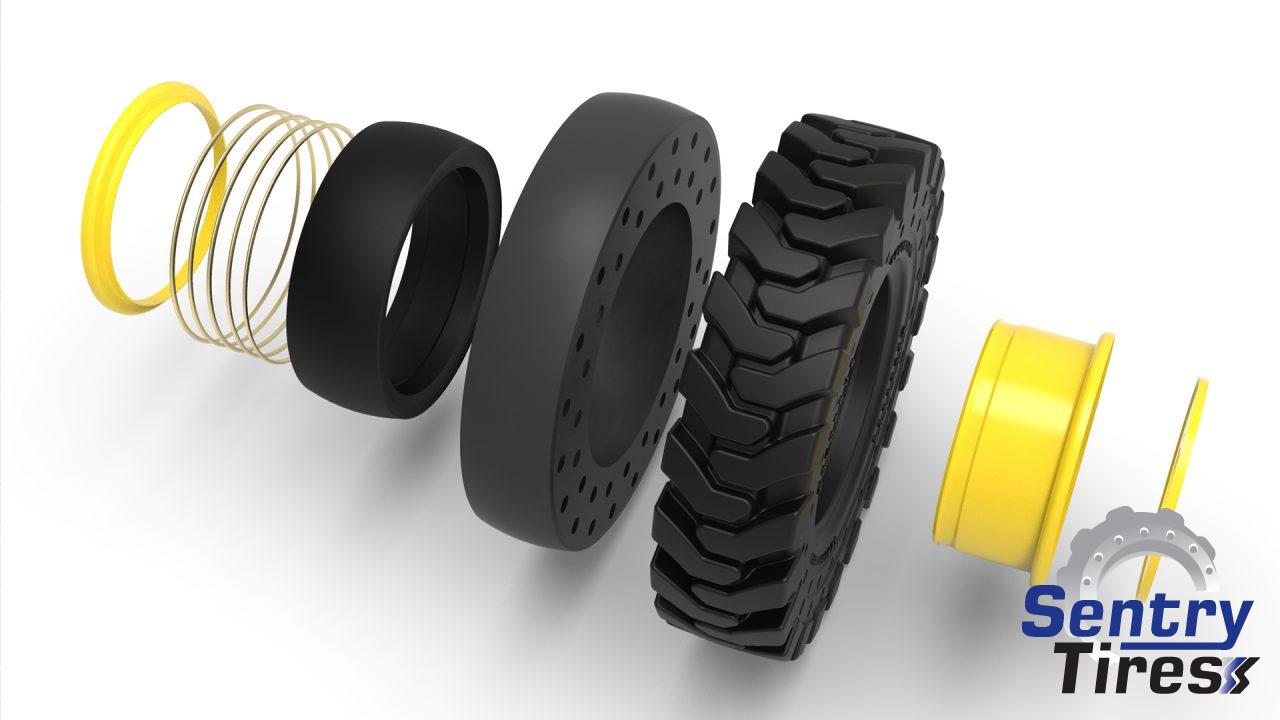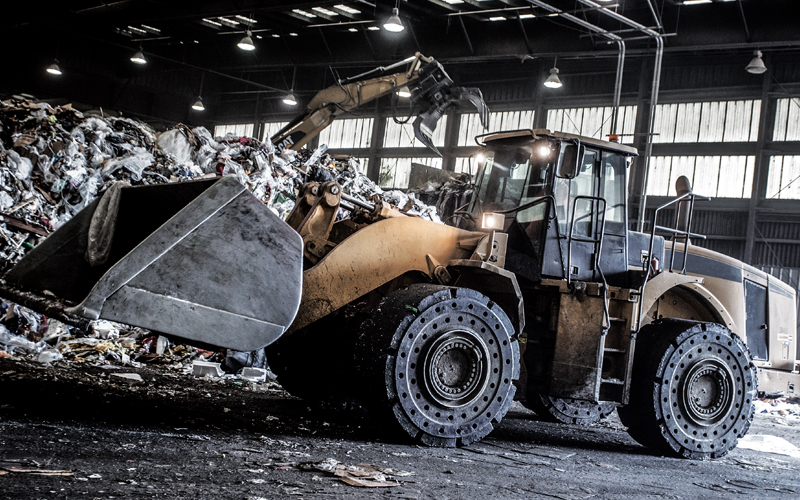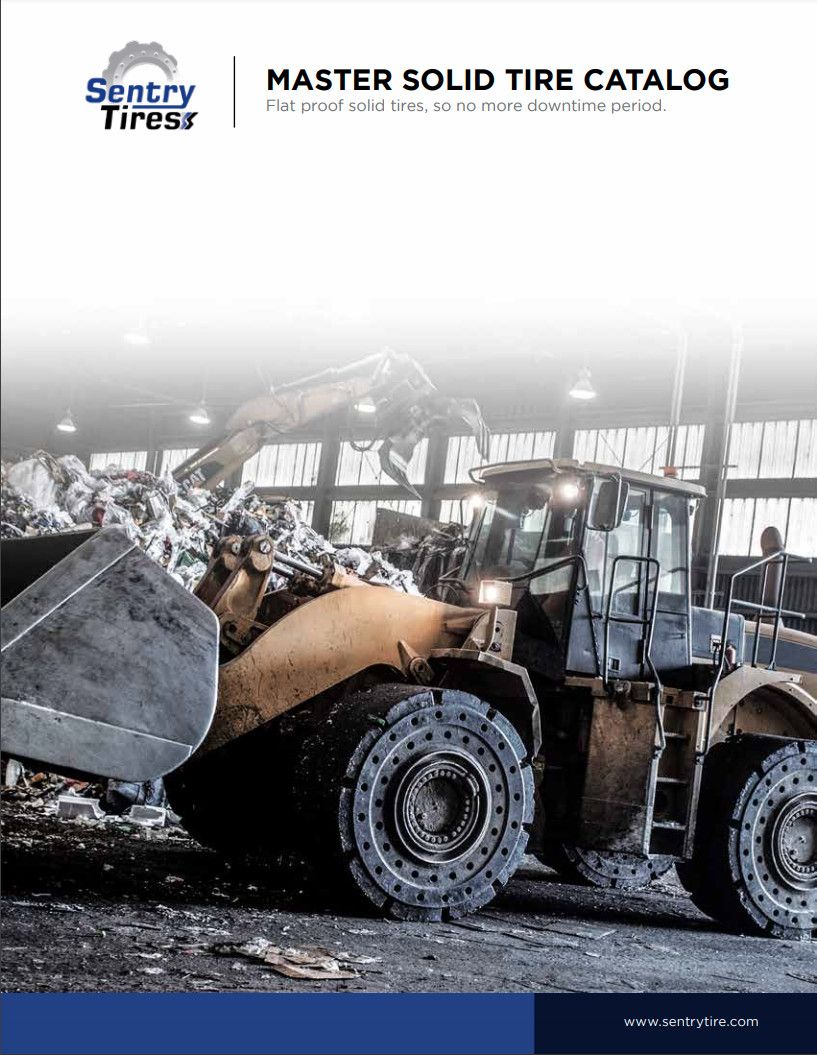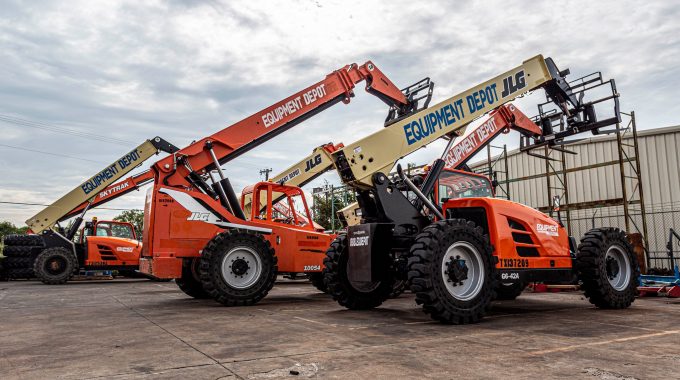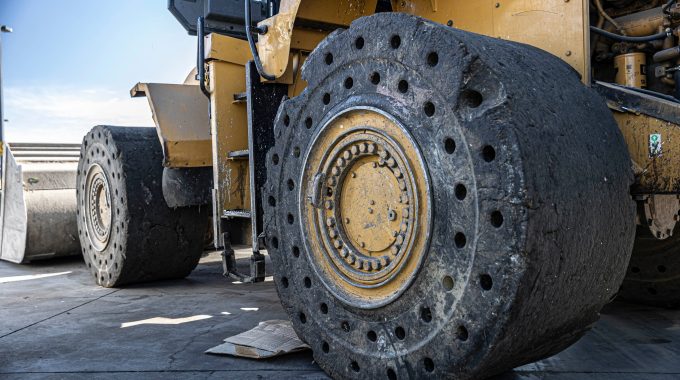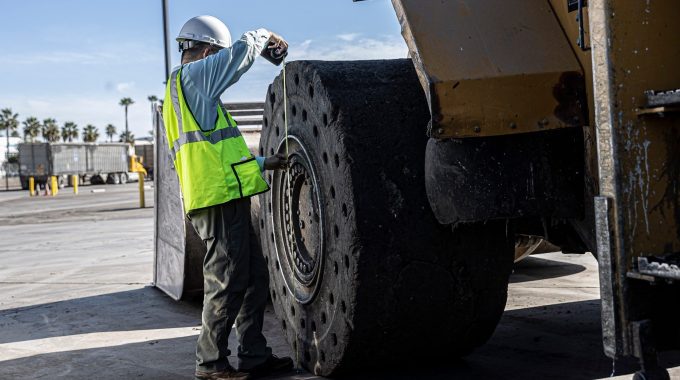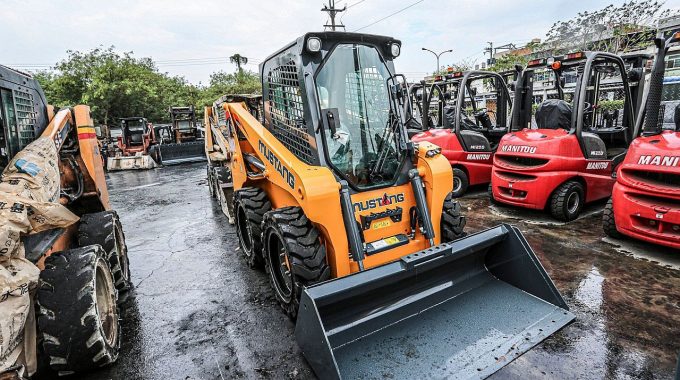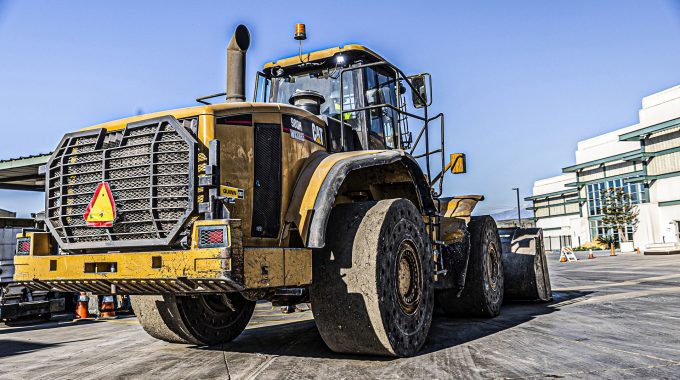
sentry tire
How Solid Tires Reduce Downtime in Warehouse Operations
Warehouse managers know that every minute of downtime costs money. Solid tires are a strategic upgrade for forklifts and material handlers operating in these demanding, debris-filled environments. Unlike pneumatic tires, solid tires eliminate the risk of flats, reduce rolling resistance, and maintain consistent performance through multi-shift cycles.
Warehouses run on tight margins and tighter schedules. When equipment goes down, especially a forklift or order picker, it’s not just a maintenance issue; it’s a disruption to the entire workflow.
Among the top culprits behind unplanned downtime? Tire failures.
That’s why more fleet managers are turning to solid tires as a reliable, long-term solution to operational inefficiencies. In this article, we’ll explore the key ways solid tires help reduce downtime in warehouse environments and improve fleet performance.
Pneumatic (air-filled) tires have long been the standard for industrial equipment due to their cushioning effect and initial cost. However, in warehouse environments, especially those with tight aisles, concrete flooring, and debris hazards, their limitations become apparent:
- Punctures from nails, staples, or metal shards
- Air pressure loss from slow leaks or valve failures
- Unpredictable downtime caused by flats in the middle of shifts
- Increased maintenance costs due to patching, inflating, or replacing tubes
Solid tires are completely airless. That alone eliminates a major point of failure—flats. But their value goes far beyond that.
Solid tires are made of 100% rubber or polyurethane compound, in three layers:
- Tread layer: Durable, wear-resistant rubber
- Cushion layer: Shock-absorbing material for operator comfort
- Base layer: Rigid rubber compound for secure rim fit
Learn more about our solid tire construction here.
No air means no leaks, no blowouts, and no time lost dealing with inflators or repair calls.
Solid tires wear more slowly than their pneumatic counterparts. In fact, many warehouse operators report 2–3x longer lifespan, depending on floor conditions and load cycles.
With fewer unexpected failures, your forklifts and lift trucks spend more time moving product—and less time sitting in maintenance bays.
One common concern with solid tires is ride comfort. On rough floors or long shifts, operators may experience more vibration compared to air-filled tires. That’s where aperture-style sidewalls or cushion layers come into play.
These innovations allow for better shock absorption without compromising the durability of solid rubber.
While the upfront investment is higher than standard pneumatics, the total cost of ownership (TCO) favors solid tires thanks to their:
- Longer service life
- Lower maintenance
- Fewer service calls
- Reduced risk of downtime
To maximize your ROI:
- Select the right tire size and compound for your equipment and floor type
- Use professional pressing services to ensure proper installation and rim fit
- Perform regular inspections for tread wear and chunking
- Partner with a tire supplier that offers core exchange programs for added value
If your warehouse operation involves:
- Tight schedules
- Continuous use forklifts
- Indoor-only movement
- Heavy or medium loads
…then solid tires could be one of the most cost-effective upgrades you make.
Want to reduce downtime and eliminate flat-related surprises?
Explore Sentry Tire’s full range of solid industrial tires engineered for warehouse reliability.
When you’re ready, get in touch.

